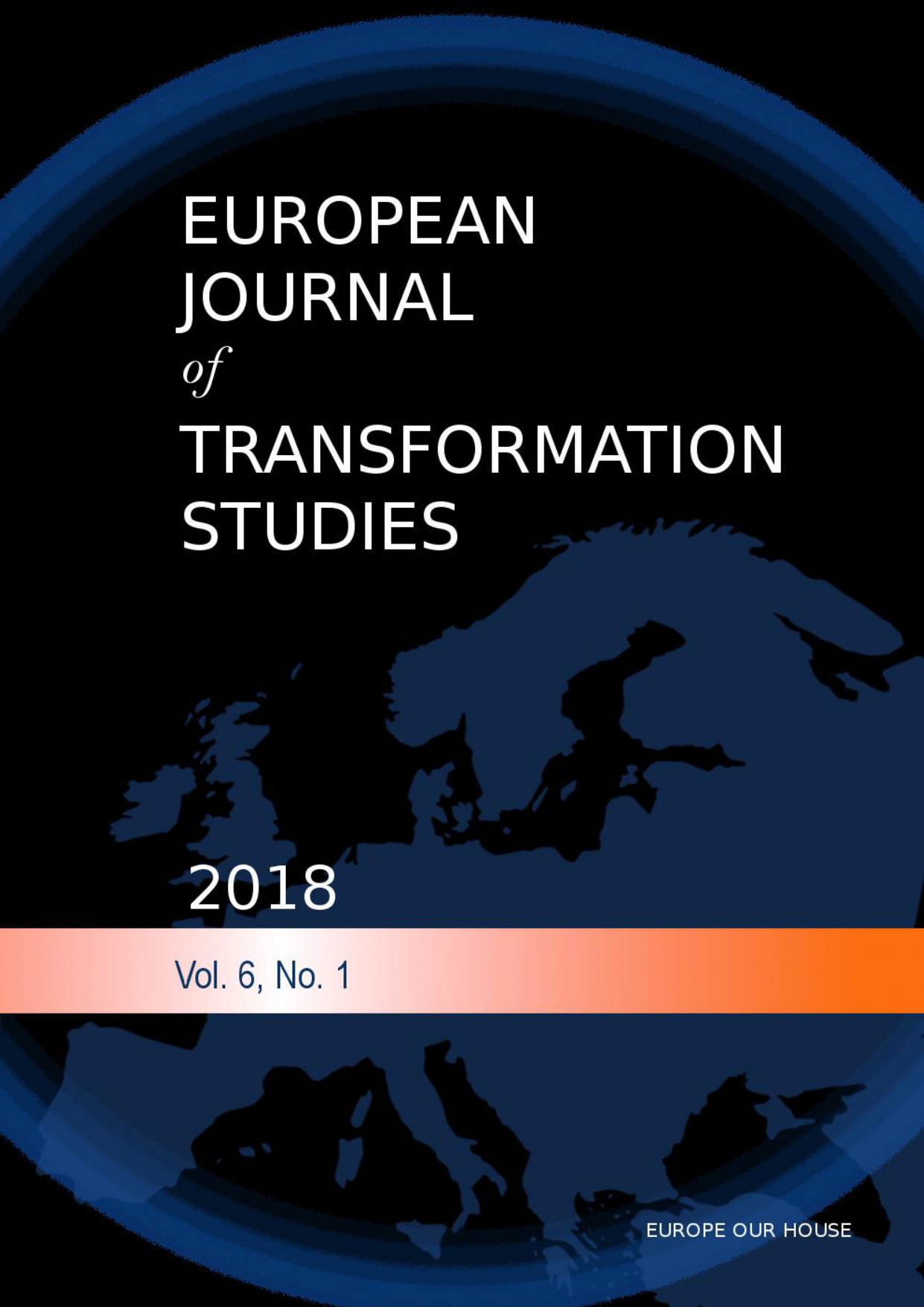From Soviet to contemporary transparency: social changes in Georgia
Słowa kluczowe:
transparency, public sphere, private sphere, transition, developmentAbstrakt
The present article examines the practical effects of the new social paradigm of transparency on the Georgian society. While contemporary Georgia affirms a clear European, modern orientation, there is a dark side to this development which needs to be addressed duly. This study examines the challenges that the new social changes bring: it explains in what ways the advent of transparency puts the functioning of the public sphere under risk. To explore the forms that both: transition and transparency assume, a complex set of qualitative methods was used including case studies, media analysis, focus group interviews and expert interviews.
Downloads
Bibliografia
Announcement of the patriarchate of Georgia [saqartvelos sapatriarqos gantskhadeba]. (2013, May 16). Patriarchate of Georgia [saqartvelos sapatriarqo]. Retrieved from http://patriarchate.ge/geo/799-2/ (Accessed December 14, 2017).
Askaneli, Z., and Bregadze, L. (1988, October 27). To the bait of diplomacy [diplomatiis ankesze]. Young Communist [akhalgazrda komunisti], 4.
Benedict, R. (1984). The chrysanthemum and the sword: Patterns of Japanese culture. Tokyo: Charles E. Tuttle Co.
Bourdieu, P. (2001). Television. European Review, 9, 245-256.
The Caucasus Research Resource Centers. (2015). Caucasus barometer. Retrieved from ODA - http://caucasusbarometer.org (Accessed December 13, 2017).
The Caucasus Research Resource Centers. (2015). NDI: Public attitudes in Georgia, August 2015. Retrieved from ODA - http://www.caucasusbarometer.org/ (Accessed December 13, 2017).
Chandhoke, N. (2007). Civil Society. Development in Practice, 17, 607-614.
Chavchavadze, I. (1861). Thou my Pen [chemo kalamo]. Retrieved from the national library of Georgia website: http://www.nplg.gov.ge/ebooks/authors/ilia_chavchavadze/leksebi/chemo%20kalamo.pdf (accessed December 14, 2017).
Eisenstadt, Sh. N. (2006). Civil Society and Public Spheres in a Comparative Perspective. Polish Sociological Review 154.
Friedrich Ebert Stiftung. (2017). Generation in transition: Youth study 2016 – Georgia. Tbilisi: Polygraph.
Habermas, J. (1991). The Structural Transformation of the Public Sphere. Cambridge, Massachusetts: The MIT Press.
Han, B. (2015). The transparency society. Stanford: Stanford University Press.
Introduction to the Modern Thought [shesavali tanamedrove azrovnebashi]. Tbilisi: Ilia State University [Tbilisi: Ilias sakhelmtsipo universitetis gamomtsemloba], Book II, 57-66.
Jgerenaia, E. (2017, May-June). Traits for the portrait of Eduard Shevardnadze [shtrikhebi Eduard Shevardnadzis portretisatvis]. Politics, Academic Analytical Journal [politika, sametsniero analitikuri jurnali], 24-41.
Karolewski, Ireneusz Pawel. (2006). Civil Society and its Discontents. Polish Sociological Review 154, 167-185.
Kekelia, T. (2015). Building Georgian national identity. In A. Agadjanian, A. Jodicke and E. van der Zweerde, (eds.), Religion, nation and democracy in the South Caucasus (pp. 120-134). London and New York: Routledge.
Leshchenko, N. (2002). Playground for democracy: Theoretical and methodological considerations about the impact of civil society. Polish Sociological Review, 140.
Mikeladze, T. (2013). Crisis of secularism and loyalty towards the dominant group. Tbilisi: Saunje.
Pig’s head nailed at the door of Muslim boarding-school in Kobuleti [Qobuletshi muslimta dagegmili pansionis karze ghoris tavi miatchedes]. (2014, September 11). UN Association of Georgia. Retrieved from http://civil.ge/geo/article.php?id=28672 (Accessed December 14, 2017).
Pusca, A. (2007). Shock, therapy, and postcommunist transitions. Alternatives: Global, Local, Political, 32.
Sennett, R. (2003). Respect in a World of Inequality. New York and London: W.W. Norton & Company.
Sennett, R. (1992). The fall of public man. New York and London: W.W. Norton & Company.
Wilkinson, J. (June 2010). Personal Communities: Responsible Individualism or Another Fall for Public [Man]? Sociology, 44.
World Bank Group. (November 2016). Polarization and populism. Retrieved from http://pubdocs.worldbank.org/en/278581479765753603/ECA-Economic-Update-Nov-2016-Eng.pdf. (Accessed December 13, 2017).
World Values Survey. Retrieved from http://www.worldvaluessurvey.org/WVSOnline.jsp (Accessed December 13, 2017).
Zdravomyslova, E. & Voronkov, V. (Spring 2002). The Informal Public in Soviet Society: Double Morality at Work. Social Research, 69, 49-69.

 Uniwersyteckie Czasopisma Naukowe
Uniwersyteckie Czasopisma Naukowe



